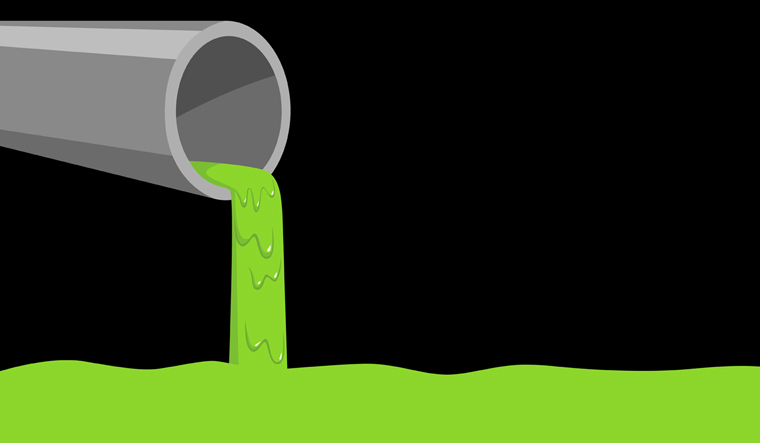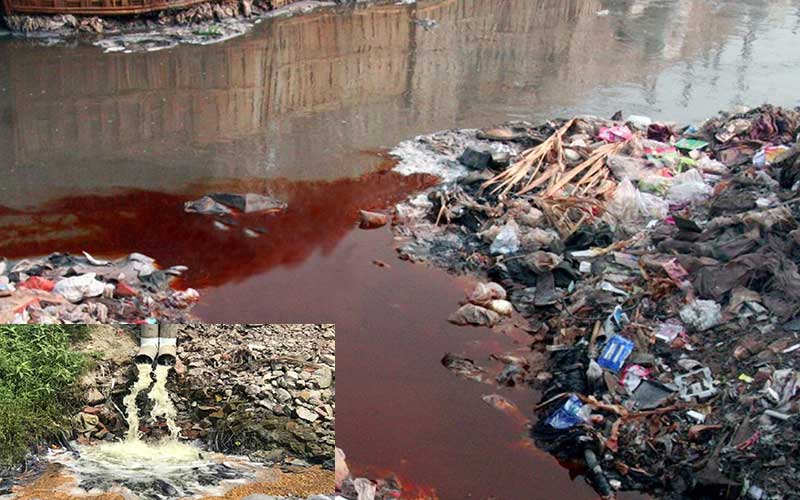Industrial Wastewater Treatment: Advanced Techniques for Effective Administration
Industrial Wastewater Treatment: Advanced Techniques for Effective Administration
Blog Article
Understanding the Comprehensive Refine of Liquid Waste Disposal: Best Practices and Environmental Influence Factors To Consider
The monitoring of liquid waste disposal is a complex problem that calls for a complete understanding of different best methods and their associated ecological impacts. From the kinds of fluid waste produced to the methods used for collection, therapy, and last disposal, each action plays an important function in guarding ecosystems and public health and wellness.
Kinds Of Fluid Waste
Understanding the different kinds of liquid waste is crucial for reliable management and disposal methods. Liquid waste can be broadly categorized into numerous kinds, each calling for unique handling and therapy methods.
Industrial fluid waste frequently consists of harmful products, consisting of hefty metals, solvents, and chemicals, produced throughout making processes. These wastes require rigorous regulatory conformity to safeguard human health and wellness and the setting. Residential liquid waste mainly refers to wastewater produced from homes, including sewage and greywater, which, although less hazardous, can still present considerable dangers if improperly handled.
Agricultural fluid waste, consisting of overflow from ranches, usually contains fertilizers and pesticides that can result in ecological deterioration otherwise dealt with appropriately. Clinical fluid waste, created from medical care centers, consists of polluted fluids such as bodily fluids and chemicals, calling for specialized disposal approaches to stop infection and ecological contamination.
Finally, oil and oil waste, normally created by dining establishments and auto sectors, can create extreme obstructions in drain systems if not taken care of effectively. Recognizing these groups assists in targeted methods for treatment, compliance with laws, and efficient disposal techniques, ultimately advertising environmental sustainability and public health safety.

Collection Approaches
Efficient collection methods are critical for the appropriate management of fluid waste, ensuring that it is gathered safely and successfully before therapy or disposal. Various strategies are utilized relying on the sort of fluid waste generated, the quantity, and the specific features of the waste.
One common approach is the use of committed collection tanks or sumps, which are made to capture fluid waste at the resource. These systems typically include pumps that help with the transfer of waste to bigger storage containers or treatment centers. Additionally, mobile collection systems outfitted with vacuum innovation are used in situations where waste is created intermittently or in hard-to-reach places.
For commercial settings, closed-loop systems can efficiently decrease leaks and spills, permitting for the recovery and reuse of liquid waste. It is additionally vital to train employees on proper collection procedures to minimize risks connected with unsafe materials.
Additionally, carrying out normal upkeep timetables for collection equipment guarantees ideal performance and security. The assimilation of innovative monitoring systems can enhance collection efficiency by offering real-time data on waste degrees and prospective threats. Overall, effective collection methods are foundational to sustainable liquid waste management practices.
Treatment Processes
Treatment processes play an important role in the administration of liquid waste, transforming potentially hazardous products right into recyclable resources or safe effluents - liquid waste disposal. These processes can be generally classified right into physical, chemical, and biological methods, each tailored to address details contaminants existing in the waste stream
Physical therapy techniques, such as sedimentation and filtering, job by getting rid of suspended solids and particulate issue. These techniques are commonly the initial step in the therapy chain, properly minimizing the tons on subsequent procedures. Chemical treatments involve click for source making use of reagents to reduce the effects of harmful substances, speed up heavy metals, or oxidize natural contaminants, thereby boosting the security of the effluent.
Organic treatment procedures, including turned on sludge systems and anaerobic digestion, take advantage of the all-natural capabilities of microbes to deteriorate raw material. These approaches are especially effective for wastewater consisting of biodegradable toxins. Advanced treatment technologies, such as membrane layer purification and progressed oxidation procedures, are progressively used to achieve higher degrees of purification.
Including a combination of these therapy methods not only makes certain compliance with governing standards however additionally promotes ecological sustainability by recovering beneficial resources from fluid waste.
Disposal Options
Exactly how can companies ensure the liable industrial wastewater treatment solutions and safe disposal of liquid waste? Efficient disposal choices are essential for guarding public wellness and the setting. The key techniques consist of land treatment, incineration, and disposal followed by discharge into local wastewater systems.
Land disposal includes the mindful containment of fluid waste in marked land fills, ensuring that it does not leach right into surrounding dirt or water. Incineration, on the various other hand, topics fluid waste to high temperatures, converting it into ash and gases, which call for appropriate purification to decrease exhausts. This technique is appropriate for unsafe wastes that can not be treated through typical methods.
In instances where liquid waste can be treated, companies might select chemical or biological therapy procedures to reduce the effects of dangerous elements before releasing the dealt with effluent into municipal systems. This route commonly straightens with regulative demands, making sure that the effluent satisfies security requirements.
Ultimately, companies need to perform detailed evaluations of each disposal alternative to establish its feasibility, thinking about elements such as waste make-up, governing conformity, and potential dangers to wellness and the atmosphere. By choosing suitable disposal methods, organizations can add to a liable waste monitoring technique.
Environmental Influence
The environmental impact of liquid waste disposal is a critical factor to consider for companies looking for to minimize their environmental impact. In addition, the discharge of neglected or improperly dealt with you can try these out waste right into surface waters can result in eutrophication, leading to oxygen deficiency and the succeeding death of fish and various other organisms.

To alleviate these impacts, organizations have to adopt best techniques such as executing strenuous waste treatment processes, promoting recycling and reuse, and sticking to governing requirements. By taking a positive technique to liquid waste management, entities can dramatically decrease their ecological footprint while supporting sustainable development objectives. Eventually, a comprehensive understanding of the environmental impacts connected with fluid garbage disposal is crucial for informed decision-making and accountable stewardship of natural deposits.
Final Thought
Reliable administration of liquid waste is crucial for protecting environmental integrity and public health. By taking on finest practices in treatment, collection, and disposal, alongside adherence to governing standards, the potential for harmful contamination of ecological communities can be substantially lowered. Continual developments in modern technology and processes add to lasting waste management efforts. Eventually, an extensive understanding of liquid garbage disposal not only mitigates environmental influences but likewise fosters a commitment to liable source management and ecological stewardship.
The administration of fluid waste disposal is a multifaceted issue that requires a detailed understanding of different ideal methods and their connected environmental impacts. From the kinds of fluid waste generated to the techniques used for collection, therapy, and last disposal, each action plays an important function in safeguarding environments and public health.The environmental impact of liquid waste disposal is a crucial factor to consider for companies seeking to minimize their environmental impact. Ultimately, a thorough understanding of the ecological impacts connected with fluid waste disposal is crucial for educated decision-making and liable stewardship of natural sources.
Eventually, a comprehensive understanding of liquid waste disposal not just mitigates ecological impacts yet also fosters a dedication to accountable resource management and environmental stewardship.
Report this page